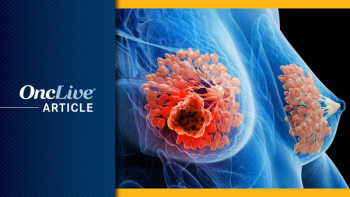
Phase III Clinical Trials in HER2-Positive Breast Cancer
For High-Definition, Click
A number of large clinical trials examining therapies for patients with HER2-positive breast cancer are ongoing or have recently completed. These studies provide insight into optimal treatment strategies in the adjuvant and neoadjuvant setting.
In the phase III BETH study, the addition of bevacizumab to trastuzumab failed to improve disease-free survival and overall survival as adjuvant therapy for patients with HER2-positive breast cancer. Results from the BETH study were not completely surprising, believes Mark D. Pegram, MD, since bevacizumab has not traditionally demonstrated efficacy as an adjuvant therapy in other disease types. Moreover, the addition of the VEGF inhibitor bevacizumab may have been redundant, since trastuzumab can effectively reduce VEGF expression, Pegram believes.
The phase III KATHERINE study is comparing T-DM1 (ado-trastuzumab emtansine) to trastuzumab as an adjuvant therapy for patients with HER2-positive breast cancer who have residual tumor in the breast or axillary lymph nodes. This study is currently enrolling and hopes to uncover a novel approach to treating patients with node-positive or residual disease, notes Denise A. Yardley, MD (NCT01772472).
Achieving a pathologic complete response (pCR) to neoadjuvant therapy was shown to significantly correlate with survival in a follow-up analysis of the phase III NeoALTTO study. This study explored neoadjuvant treatment with trastuzumab plus lapatinib for patients with HER2-positive early breast cancer. The positive results reinforce the importance of dual HER2 blockade in the neoadjuvant setting, believes Kimberly L. Blackwell, MD.
In a separate analysis of the NeoALTTO study it was uncovered that patients with mutations in PIK3CA were less likely to achieve pCR when treated with neoadjuvant HER2 blockade. Moreover, an analysis of the GeparSixto and GeparQuinto studies found similar resistance for patients with PIK3CA mutations.
To address this resistance, studies are exploring pan-PI3K and PI3K-alpha inhibitors, such as BKM120, BYL719, and GDC-0032. At this point, it remains unclear whether pan or alpha specific inhibitors will be more effective, believes Joyce A. O’Shaughnessy, MD. There is currently a large unmet need for patients with these resistance mutations, since they generally recur following surgery as a result of lower pCR rates.




































